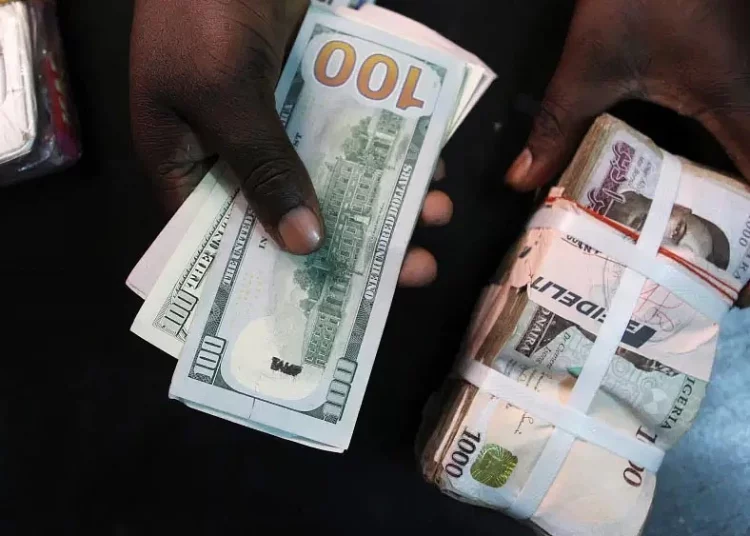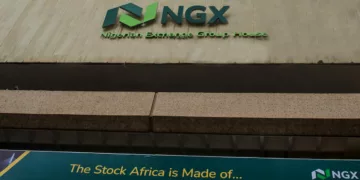The value of the naira reached an all time low last week at the parallel market, selling for as low as N730 to the dollar on increased demand and speculative activities.
This is as the external reserves of the country dipped for the first time in eight weeks, declining by $169.21 million week on week to $39.22 billion as at July 28, 2022.
From N670 which it was selling at the end of the previous week, the naira crossed the N700 mark on Wednesday, hitting N730 to the dollar on Thursday before easing to N715 on Friday. The volatility in the foreign exchange market was such that the Central Bank of Nigeria (CBN) had to reassure Nigerians on its resolve to ensure that demands
for foreign exchange at the offical market are met.
To calm the volatility, the director, Corporate Communications at the CBN, Osita Nwanisobi had assured that the apex bank remains committed to resolving the foreign exchange issues confronting the nation and as such, has been working to manage both the demand and supply side challenges.
While admitting that there was huge demand pressure for foreign exchange to meet the needs of manufacturers as well as those for the payment of tuition, medical fees and other invisibles, Nwanisobi said, the CBN was concerned about the international value of the naira, adding that, the monetary authority was strategising to help Nigeria earn more stable and sustainable inflows of foreign exchange in the face of dwindling inflows from the oil sector.
The value of the naira had taken a downturn at the parallel market after reports that the central bank had prohibited the purchase of dollars with naira. The apex bank had however denied the report noting that the statement by the CBN governor, Godwin Emefiele had been misconstrued.
Nwanisobi, while stating that the report was an attempt to deliberately misrepresent the import of Emefiele’s caution on electioneering spending by the political class, said the warning by the CBN Governor was to those who sought to convert the Naira from their accounts into foreign exchange for election campaign and not those who seek to exchange the currency for legitimate purposes such as payment for tuition and other personal expenses.
Emefiele, at the last Monetary Policy Committee breifing in response to a question on impact of election spending said “for election spending as far as we are concerned what we do is to monitor liquidity in the system an once we see that there is excess liquidity we will continue to use our discretionary powers to mop up those liquidity in the vaults of the banks so that they will not get involved in speculative activities with those who want to speculate with the currency.
“As for those who want to be taking naira from their account to buy dollar because of elections, I want to warn not advise that it is illegal to do so. Whereas it sounds more convenient that you should carry dollars because you can carry a little dollar with a lot of value in your pocket but if the security agencies hold you know the implication of that we will continue from our own side.
“We have our own apparatus through which we monitor movement of funds between customer or between banks and customers or from one bank to another. Any bank that we find in those kind of transactions that we consider to be unauthorized or that we consider to be illegal you can be guaranteed that your account will be placed on PND.
“When your account is placed on post no debit it means you will never be able to conduct banking transactions in any bank in Nigeria. It is a very injurious tool that the CBN uses. CBN has turned itself into a monster that uses an injurious tool to stop you from conducting illegal flows, whether domestic or foreign currency.
“So I will advise you not to get involved in unauthorized and illegal movement of money from your bank to your account or from your account to another account or in currency conversion. When you do that and you are caught in that practice your account will be placed on PND.”
This had spurred a dollar buying spree which in addition to the already high demand overflowing from the official market had caused the value of the naira to decline from N630 to the lowest level of N730 per dollar.
According to Head of Consulting at Agusto Consulting, Mr. Jimi Ogbobine, the recent jump we are seeing is basically a result of a supply crisis in the forex market. Turnover at the Investors’ and Exporters’ window last week had declined by 53.1 per cent to $503.64 million as ast July 28, 2022 with trades consummated within the N410 and $444 to the dollar. The rate at the I&E window had closed at N429 to the dollar.
Ogbobine noted that “the foundation of all of these is demand versus supply and when demand outweighs supply you will see this kind of currency depreciation.
If the central bank was able to meet forex demand, then we will not see this kind of price distortion. On one end, Nigeria is not able to meet forex supply and on the other end we are trying to restrict and constrict demand which means that quite a number of legitimate requests for forex are now being diverted to the parallel market.
“So, while the official market seems relatively calm, the reality of the supply shortage is playing out in the parallel market where more legitimate request for forex is being diverted to because the official market is not able to demand.
“What we should look at is the policy outlook because the kind of policy actions we would take would determine the kind of outcome of the Naira. Firstly, are we going to have rate harmonization between the parallel and the official market because what these two rates imply is that there would continue to be arbitrage between the parallel and official market.
“Then the second option key signal, we look at is the CBN demand management practices, because the demand management practices is a pointer to the fact that the central bank is trying to manage supplies actually and that’s why we are seeing this contrition to demand. These two should actually be the signpost and focus for the central bank.” Ogbobine stated.
In response to the volatility in the forex market, Nwanisobi said the CBN would continue to make deliberate effort in the foreign exchange sector to avert further downward slide in the value of the naira, which he observed is fuelled by speculative tendencies.
Reiterating an earlier position of the CBN Governor, he urged Nigerians to play their role by adjusting their consumption patterns, looking inwards and finding innovative solutions to the country’s challenges.
He submitted that Monetary policy alone could not bear all the burden of the expected adjustments needed to manage the challenges around Nigeria’s foreign exchange and admonished that: “It’s our collective duty as Nigerians to shore up the value of the Naira”.











